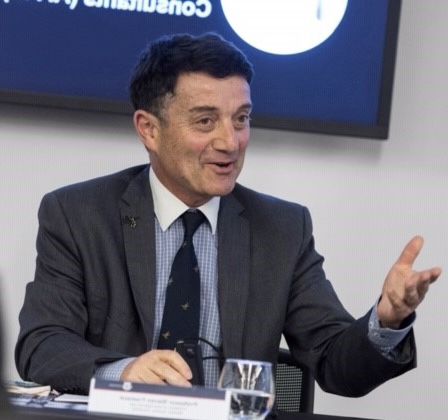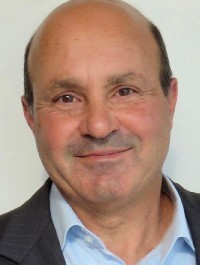Satellites, Space and Cyber Threats
Event description
The Cybersecurity Advisors Network (CyAN) APAC invites you to a special online forum on the cybersecurity implications of space and satellite technology.
We feature three expert panellists who will share their perspectives from the standpoint of technical threats, cyberlaw and international conventions governing the military and civilian use of space.
We will consider
- the feasibility of attacking satellites and space-based infrastructure
- what a “day without space” might look like
- the crucial role space technology plays in critical infrastructure/national security/military activities
- how the multifaceted and ubiquitous nature of space impacts upon governance structures and decision-making
- the need to develop appropriate ‘whole of Government’ policies/strategies for space, also recognising its close intersection with cyber technology
- does international law apply to the activities of nation-states in cyberspace?
- to what extent does international law prohibit malicious cyber activities against critical infrastructure?
- what are the difficulties around attributing cyber attacks/malicious cyber activities to nation-states?
- recent research around ‘autonomous cyber capabilities’ — what are these and what kinds of legal issues do they raise.
The panel will feature
Emeritus Professor Steven Freeland — international authority on space and international law

Steven Freeland is Emeritus Professor of International Law at Western Sydney University and Professorial Fellow, Bond University. He also holds Visiting or Adjunct positions at various other Universities/Institutes in Copenhagen, Vienna, Toulouse, Hong Kong, Montreal, Kuala Lumpur and London. Prior to becoming an academic, he had a 20-year career as an international commercial lawyer and an investment banker. Steven was recently appointed by United Nations Committee on the Peaceful Uses of Outer Space (UNCOPUOS) as Vice-Chair of a 5-year Working Group looking at the 'exploration, exploitation and utilisation of space resources'. He is a Member of the Advisory Board of the Australian Space Agency and has been an advisor to the Australian, New Zealand, Norwegian and several other Governments on issues relating to national space legislative frameworks and policy. Steven has represented the Australian Government at UNCOPUOS meetings. He has authored approximately 300 publications on various aspects of International Law and presented over 1500 expert commentaries on national and international media outlets worldwide on legal/geopolitical issues. He has presented conference papers and keynote speeches in over 40 countries.
Edward Farrell — Principal Consultant, MercuryISS; Advisor, HackHunter, Industry Fellow, UNSW

Edward Farrell is a technical security consultant with over fifteen years’ experience in information security, technical and IT operations security ranging from enterprise wide security management to the secure design and implementation of networks. He has also brought from his previous experience a substantial amount of knowledge in the fields of computer network defence as well as network architecture and design. These core skills, alongside an extensive experience as a consultant, set the foundation for his career in information security.
Dr Samuli Haataja — Senior Lecturer at Griffith Law School, Griffith University

Dr Haataja’s research explores law and emerging technologies with a focus on cyberspace and public international law. He published his book “Cyber Attacks and International Law on the Use of Force: The Turn to Information Ethics” with Routledge in 2019, and he has published in various international law and technology journals. He is also a member of the Program on the Regulation of Emerging Military Technologies (PREMT) and the Institute of Electrical and Electronics Engineers Society on Social Implications of Technology (IEEE SSIT).
Panel Moderator
Peter Coroneos, International Vice President, Cybersecurity Advisors Network

Peter is an industry leader, activist and policy innovator. As an internationally recognised authority on cyber policy, Peter was invited twice to the White House to brief Obama Administration cybersecurity leadership. He was principal architect of the icode anti-botnet mitigation scheme which covered 92% of the Australian user base and in its subsequent US derivative, around 276 million US broadband users. Through CyAN, he champions innovation in critical cyber skills, capacity building and behavioural change while supporting the business, professional and personal development of the organisation’s members. He also serves as CEO of Icon Cyber.
Tickets for good, not greed Humanitix dedicates 100% of profits from booking fees to charity
